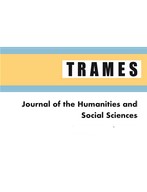ESTONIAN E-RESIDENCY AND CONCEPTIONS OF PLATFORM BASED STATE-INDIVIDUAL RELATIONSHIP
ESTONIAN E-RESIDENCY AND CONCEPTIONS OF PLATFORM BASED STATE-INDIVIDUAL RELATIONSHIP
Author(s): Piia Tammpuu, Anu Masso, Mergime Ibrahimi, Tam AbakuSubject(s): Civil Society, Government/Political systems, ICT Information and Communications Technologies
Published by: Teaduste Akadeemia Kirjastus
Keywords: digital identification; citizenship; digital platforms; platformization; e-government; e-residency; virtual mobility;
Summary/Abstract: This study explores how government-supported digital ID systems evoke novel conceptions of platform-based state-individual relationship by drawing on the concept of platformization and Estonian e-residency as the empirical case. E-residency is a policy concept introduced by the Estonian government, which allows foreigners to apply for a state-issued digital ID in order to gain remote access to Estonian public and private e-services. Based on qualitative interviews with individuals having an e-resident digi-ID, we examine the ways in which they construe e-residency from the perspective of state individual relationship. Our findings indicate that apart from a transactional service-based relationship, being an e-resident can also imply a sense of membership in the state and thus serve as a basis for transnational belonging. Hence, the digital state is not only perceived as a platform manager and a service provider, but also as a membership organisation enacting its rules of inclusion through its digital ID schemes.
Journal: TRAMES
- Issue Year: XXVI/2022
- Issue No: 1
- Page Range: 3-21
- Page Count: 19
- Language: English

